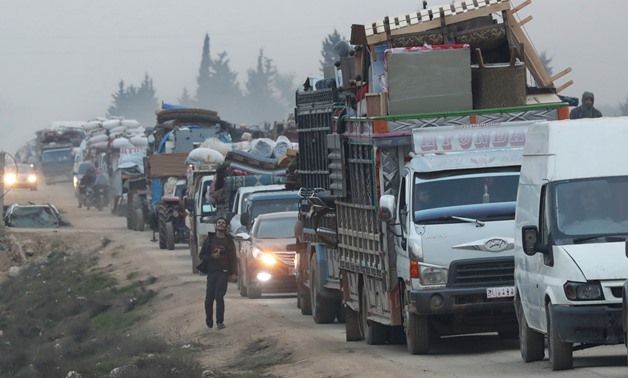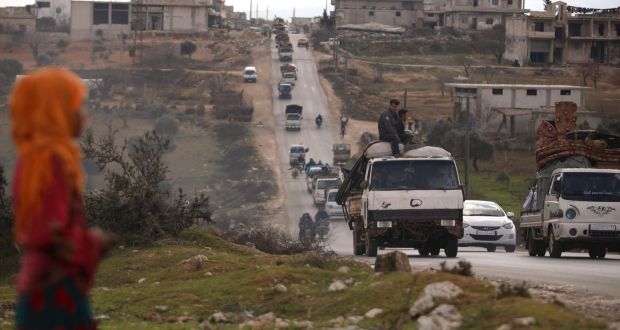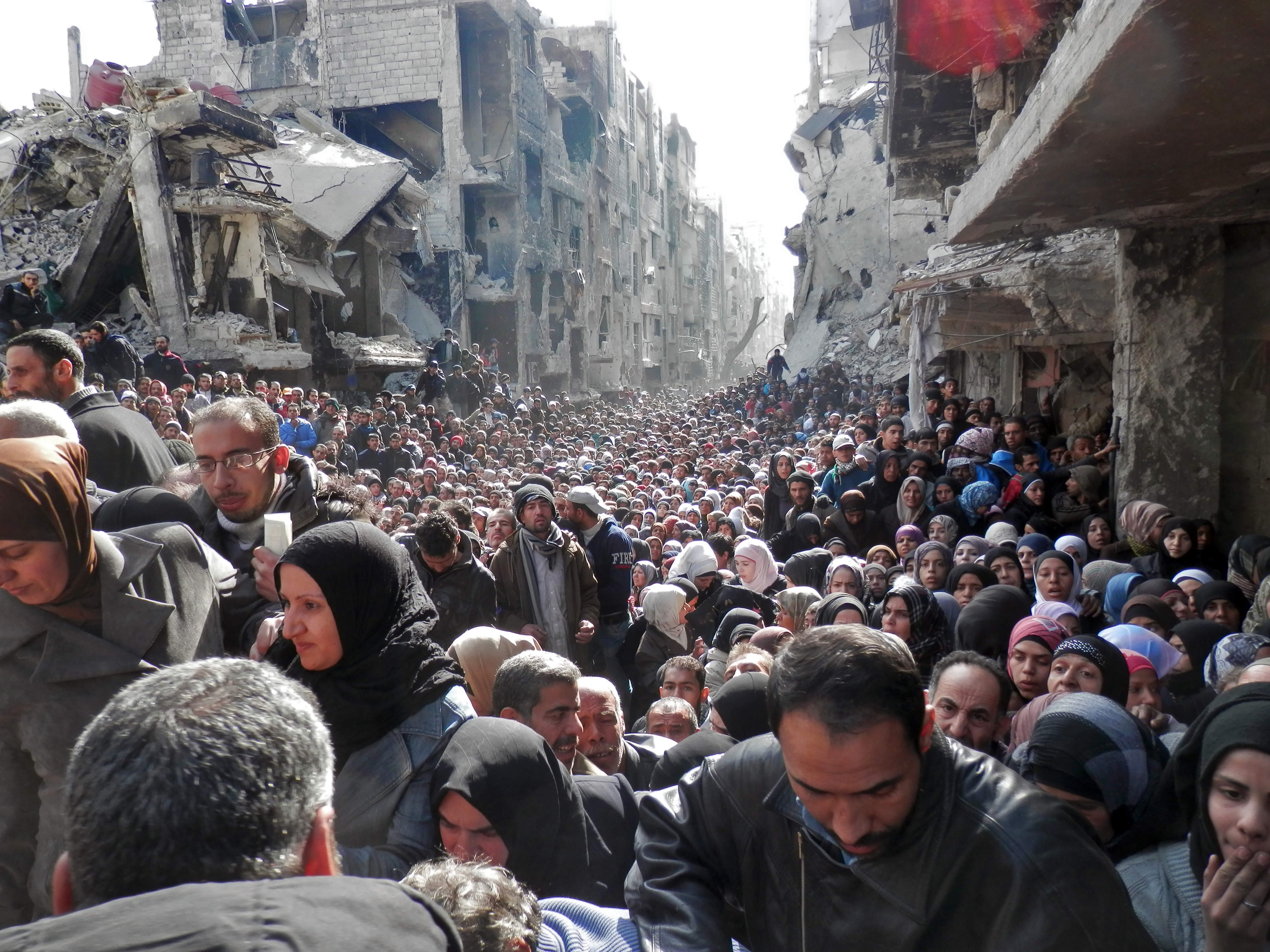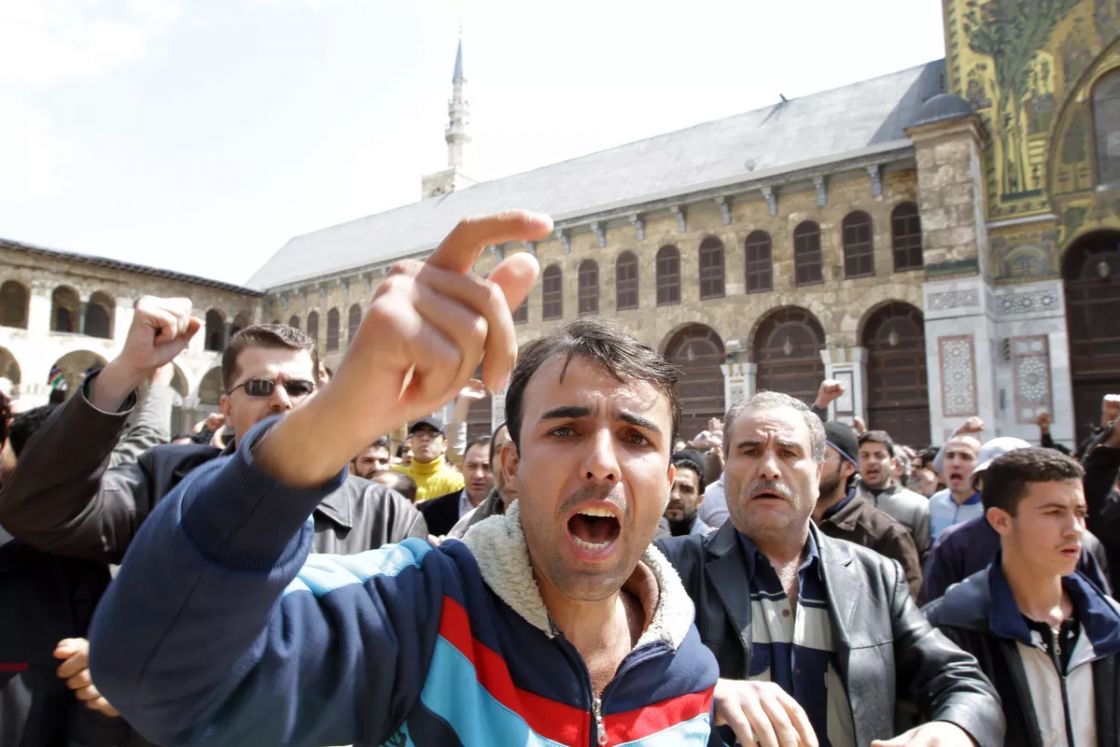- Articles
- Posted
Politics as Fraud and as a Struggle ... The Position from Washington, as an Example
The Syrian situation is at the threshold of a new and particular phase of wild transformation. Although the scene, with its various dimensions, the main one of which is the economic-livelihood one, appears grim to many. A closer look not only at the Syrian situation, but also at the entirety of international and regional developments, clearly indicates upcoming imminent breakthroughs.
Saad Saeb
Perhaps the most important aspect of the upcoming breakthrough, in parallel with the stabilization and solidification of the new international power balance and the approaching full implementation of UNSC Resolution 2254, is the next wave of the popular movement in Syria. The next popular movement will be the decisive factor in benefiting from the new international balance and the implementation of UNSCR 2254, in a way that will make both serve the interests of Syria and the vast majority of Syrians. Without this movement and without orderliness and maturity thereof, nothing can be guaranteed.
Since the popular movement in its essence is an expression of the high political activity of people – the idea of political work itself – and because of the systematic and long-term distortion it has been subjected to, requires that one ponder it at length and define its nature and directions.
Civil Society and Politics
One of the entry points to public engagement with political work is that arbitrary separation that is presented as an assumption that everyone should accept, which is that civil work is neutral while political work is partisan. One way or another, a positive trait is attributed to “civil work” while “political work” is stamped with a negative one.
We will dive into addressing this separation process, but it suffices to point out that it is theoretically baseless. The concept of civil society itself, according to its primary creator – German philosopher Hegel – included the concept of political society and, in many cases, identical to it. The process of separating the two began in the first half of the last century, with the emergence of international organizations starting with the League of Nations and then the United Nations, as well as the growing forms of soft repression (hegemony) as an auxiliary and alternative to coercive repression (control), according to which (hegemony) it was necessary for civil society to transform itself into a system for absorbing shocks, in particular revolutionary shocks.
Going back to the negative trait with which political work is stamped, we must take a quick look back, and in the Syrian context, in order to see the basis for this trait.

A Quick Look Back
Far from talking in the abstract, and closer to concrete Syrian affairs, it is useful to take an initial and intensive look at the basic political positions taken by the two extremist Syrian sides, as a concrete example of what political work in Syria is, and therefore people’s opinions of it.
On the regime side, the regime insisted from the beginning on the idea of conspiracy as a single interpretation of everything, as well as what it called the security solution, which later developed into a military solution. The regime also insisted on rejecting dialogue in the beginning, and upon accepting it, always treated it as a tool for prevarication and evading pressure. Nothing attests to that more than the regime ignoring the recommendations of the consultative meeting in July 2011, and the events that followed, whether through the showy behavior during the successive Geneva rounds, or later the position that was neither a public rejection of nor agreement to UNSCR 2254, but rejection in practice and by hinting whenever possible, and up to the previous and current disruptive behavior towards the Constitutional Committee.
On the “opposite” bank, the Syrian National Council, then the Syrian Opposition Coalition, and later the Negotiations Commissions in both its formats and in which the main control remained with the same entities, they all adopted positions hostile to the political solution. This started with rejecting dialogue, calling for foreign intervention, and encouraging militarization, then rejecting the Kofi Annan plan, the Arab League initiative, the Geneva Communiqué, UNSC Resolution 2254, the Astana process, the Sochi Conference, and the Constitutional Committee.
What is common between the extremists of the two sides is that they always were forced to accept later, to some degree, and in the context of prevarication and continued obstruction, what they had previously rejected. It is a good thing for us (Syrians) – if it is even possible to talk about good things – that electronic platforms and storage spaces have evolved so much that all positions are recorded and preserved as data, statements, audio, and visual files.

Politics as Fraud
The purpose of the above exposition is to get to the following idea: if the two extremist sides, which took the lead in the last few years, practice politics in the manner described above, that is, by raising slogans and taking certain positions, only to retract from them to the opposition position later, it is normal for Syrians to judge politics as a whole and political practice as nothing more than a fraudulent, evasive, false, and opportunistic practice that is not governed by a principle and has no constants, as long as any situation, no matter how solid it appears to be, is subject to haggling and changing from one position to its opposite.
Within this perception, it becomes completely understandable that we get genuine advice from some by saying: do not declare absolute hostility to the US and let your positions be more “flexible”. In this sense, we really do not have the least flexibility. We demanded dialogue from the outset, we agreed to the Arab League initiative, the Geneva Communiqué, UNSCR 2254, the Astana track, Sochi, and the Constitutional Committee, and we held onto our positions. Through it all, the main slogan towards which we were working was a radical, comprehensive socioeconomic political, and democratic change, in parallel with firm attitudes toward the US and the West in general. “Socioeconomic” is a crucial key to understanding the different matters and positions from our point of view.
Extremists on both sides are not content with practicing politics in its fraudulent conception, but rather distorting the meaning of politics and political work in people’s minds. It suffices to recall that the extremists from the regime’s side constantly ridicule the political aspect of the crisis to the interest of combating terrorism and the patriotic slogans, as if each aspect is independent from or viable without the other. On the other side, some people dazzle us with statements such as “we are revolutionaries and not opposition”, that is, they are not politicians; what is strange is that these people did not refrain from practicing political work during the last few years, and actually lead it, after they had been for decades taking the lead in the great corruption structures within the state apparatus.
Politics is an Intensification of the Economy
Marxism sees politics as an intensification of the economy, and that production relations are the material foundation on which the political life of society is built. Without going too deeply into the Marxist view of the matter, we can simply say: look at the economic programs of the extremist sides and whose interests they represent, and then it becomes possible not only to understand their previous political positions, but to predict future positions.
As for the regime, there is no need to look for its economic program in papers or pamphlets. It would be sufficient to look at the reality, not only today, but during at least the last thirty years. The distribution of national wealth in Syria, according to which up to 90% thereof goes to an economic minority does not exceed 10%, this distribution shows clearly that the existing political system works to serve the interest of this 10% that is crosscutting to sects and ethnicities, and stands against the interest of the remaining 90% who are also composed of all sects and ethnicities.
As for the opposition, or potions thereof that are beefed up with external media and political vitamins, the programs presented on paper are almost unanimous on “the free market economy”, i.e. the same as the regime’s programs, including the same distribution of wealth. In this sense, this “opposition” is not opposed to the regime, but opposed to the authority; that is, its problem is not with the plundering and repression of the people, but rather with who has the “right” to do so.
Not surprisingly, the position of the two sides toward Caesar and Western sanctions is essentially the same. The regime says to the people “stick it out and be patient, you have no choice, I will not fight the great corruption, I will not abandon the dollar, I will not abandon the system of plundering through importing, I will not abandon liberal policies, I will not make it easier to move towards a political solution, but you must stick it out, and preferably also remain quiet while you doing so.”
Extremists from the opposite side support the sanctions and say they are necessary and deny their impact on the Syrian people. If they admit that there are “some side effects”, they say to the people: “be patient, ‘victory is imminent’.” Those who are patient of course are ordinary Syrians, not the “elite” of the opposition whom they did not elect.
Since politics is an intensification of the economy and economic interests, extremists on both sides ultimately pursue the same policy in substance, but is this all that politics is?
Politics: Two Versions of Politics
If the politics that represents the plunderers has the moral and economic characteristics for them as a group and a class segment, i.e. the traits of fraud, evasiveness, profiteering, and parasitism, then the politics that represents the plundered should also bear their moral and economic characteristics, that is, the real, productive, honest, direct, frank, and moral workers.
Does the previous statement fall in the context of immaculate delusions? We do not think that at all, as the age in which we are living is the age of the mass popular movement that is mighty, ongoing, and escalating, and escalating; thus, it is the age of the demise of the old political space (within which fraudulent notions of politics are enshrined), and the birth of the new political space that will gradually evolve to express the interests of the plundered.
The politics that represents the plundered, is characterized with flexibility mixed with firmness of the principle, it is the politics of struggle and revolutionism, and not the politics of evasiveness and fraud. Therefore, the principled positions within this politics are nonnegotiable.
Above all, the main support of the politics that represents the plundered is the plundered themselves, and therefore it does not deal with them as a deaf human mass whose function is to applaud for this or that side, in parallel with complete lack of direct efficiency. Therefore, the truth is the primary tool for those who represent the plundered, because only the truth can bring the plundered together in one line against their plunderers.
It is very easy to divide the 90% based on sects, tribes, and ethnicities/nationalities, and on the basis of loyalists and opponents, secular and religious, urban and rural, Islamist, nationalist, Marxist, and so on. However, it is very difficult to unite them on the basis of their common economic interests. Thus, the political work that represents the plundered is a struggle of the kind that a great revolutionary leader described in the twentieth century as “boring monotonous work”.

Regarding flexibility and the Position from Washington
In the context of fraudulent politics, vocabulary such as flexibility, pragmatism, and political realism get used, not in the correct places, but to justify one thing which is volatile and contradictory positions. More importantly, these terms get used to consecrate a policy based on “balancing the interests of countries and standing at equal distance from all of them.” However, in its essence, it is biased towards Western interests, which carries with it an implication that the Syrian politician has to act as a “hypothetical neutral civil society” in the midst of a protracted international conflict.
Regarding the US, we have no illusions about the lack of the US desire to see Syria get out of its crisis. To the contrary, the US desire is to deepen and perpetuate the “Syrian quagmire.” We have no illusions about its implied refusal to implement 2254, regardless of what it says. Its behavior toward al-Nusra, toward the northeast, on sanctions, working against the Astana track, and other issues, on top of which is its agreement to the annexation of the occupied Syrian Golan to the Zionist entity, are all sufficient for us to see its true desires.
All these things make us certain that the solution to Syria will not be achieved without some measure of breaking the US will, whether at the international, regional, or domestic levels. All this means that any “flexibility” toward the US will only contribute to prolonging the crisis and the suffering of the people. Therefore, “flexibility” in this regard is not flexibility, but rather political fraud and taking sides against the interests of Syrians.
Since “angering the colonizer is always easier than satisfying it”, there is no other choice but to deal with the US as an enemy, and the intensity of the discourse toward the US is commensurate with the severity of its crime towards the Syrian people and the peoples of the region, and is particularly proportional to its historical implicit collusion with the networks of big domestic corruptors that have worked and acted as one of the tools to smuggle and plunder the wealth of the Syrians to the Western center.
A New Political Space
One would need to be blind and having no insight to not see the indicators and signs of a new wave of the popular movement taking off in Syria. Since it is inevitably coming, it should engage in organizing itself politically in a deeper and more mature manner than anything before, and it must separate its leaders, representatives, and slogans from within. If this movement intersects with existing political forces, so be it, but the solid foundation of the new political space is the popular movement itself ... in addition to those who have enough knowledge and practical credibility from the existing political forces.



 Saad Saeb
Saad Saeb